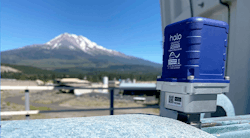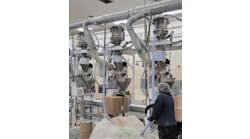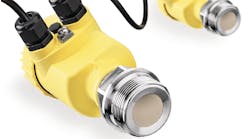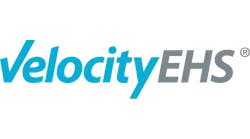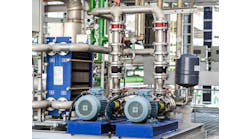Maintenance: Turn Firefighters into Forest Rangers
Heavy Industry Machine Health Lead, Augury
When it comes to machine maintenance, digital tools promise a lot — from improving safety, meeting production targets and eliminating unplanned downtime to filling skill gaps and regulating supply-chain issues. But simply alerting users to machine malfunctions isn't enough to transform your business. To gain insight, Chemical Processing spoke with Tim Sykes, heavy industry machine health lead at Augury, a machine health solutions provider that combines advanced sensors with AI capabilities and human expertise.
Q: Augury sponsored a special report on digitalization with the American Institute of Chemical Engineers. What did you learn in the report and was anything surprising?
A: I don't know that anything was surprising but it was a validation of a lot of the conversations we’ve had with manufacturers in the chemical and oil refining space over the last several years. We learned that over half of the respondents missed their monthly production targets at least once a year. Half of them say unexpected equipment failures are the biggest risk to missing those targets. And our team has been really focused on helping customers in the manufacturing space to avoid those unexpected failures. Over half — 59 percent — of respondents said that unplanned asset downtime was typically caused by mechanical problems. They want to understand how to get in front of this.
Q: What are the consequences of reactive maintenance?
A: In the chemical processing/oil refining spaces, we have to think of reactive work as dangerous work. These environments in which our manufacturing colleagues and personnel operate are inherently dangerous. The number one goal is to walk out of there with all your limbs attached and all your peers alongside you. When you add into the equation reactive work, that is another hazard in those people's days. Especially for the maintenance crews. When a machine fails unexpectedly, you really don't know what you're going to walk into. What could be in that pump? How could it have failed? What hazards might be there that you otherwise may not have had time to plan for?
I think the other consequence of reactive work is around the workforce itself. Imagine coming into work each day working in a reactive environment — where your job is simply just to put out fires. That's not a very fun job. We have workforce issues in the industry already. How do you maintain and retain highly skilled talent in an environment where they're getting called in at all hours of the night, on weekends and miss kids' soccer games? This is equally as much a safety issue as it is a worker mental health and human resources retention issue.
Finally, reactive work is almost always more expensive than proactive work. The machine is down unexpectedly, production may or may not have stopped. The machine failure is going to be more expensive to repair than it would have been to prevent.
Q: What about proactive and preventative work?
A: Preventative maintenance has been going on for a while. For instance, it's about having a lubrication program in place for your machines. You need to grease the bearings every so often to keep the friction down and to keep the machine rotating efficiently. It's all typically done on a time basis. If you think about how cars operated 20 years ago, we were changing our oil every 3,000 miles or every three months; that was really time-based preventative maintenance. Now, your car, in many instances, will tell you when it needs an oil change. We're no longer beholden to showing up at the local mechanic once every three months. Now we can go based on how frequently we drive and how hard we use the car — that's condition-based maintenance.
[pullquote]
But industry can go even further to prognostic-based condition monitoring. Imagine your car could tell you when it would need its oil changed based on where you want to go. The car would factor in how you drive, how many highway miles you're going to have, how much time you're going to spend driving above the speed limit. Your car would give you a calculation of when you're going to need to change your oil based on how you are running the machine. And that's where the industry can go in the future.
Obviously, you can't go from horse and carriage to flying cars overnight — there's a natural progression. Customers in many cases are still working in this time-based, periodic preventative-maintenance paradigm, and are just starting to get to the point of trusting technologies like IoT sensing devices, artificial intelligence and machine learning to predict when — and even how — their machines are going to fail. As customers adopt these new technologies and begin to trust that the technology is telling them the right thing and predicting the right reasons for failure, customers can then get ahead of these failures, reduce their maintenance costs, increase production and gradually make that shift to condition-based monitoring. It's only then that they have reached a certain level of maturity in their processes and trust in technology that they can take the next step and add additional context to the AI and machine learning. How is the way they run their machines going to affect the machines from a maintenance perspective over their lifetime?
Q: Will we ever get to prognostic-based maintenance?
A: I think we have to get there. Manufacturers are missing their production targets because machines are failing. And we also know that they all have workforce challenges. If we're not preventing production losses, it's a compounding effect from a supply-chain perspective and a workforce perspective. Technology needs to be an aid to the existing workforce, a mechanism to retain talent and augment existing talent.
Augury's Machine Health Solutions combine sensors with advanced AI diagnostics and human reliability experts.
Q: How will this approach impact maintenance teams?
A: We need to turn firefighters into forest rangers. And that's really hard to do because firefighters are seen as heroes. If a machine failed and the maintenance technician came in at 2 a.m. to get it back up before the next shift, everybody's congratulating him for doing such a great job. But wouldn't it be better if that machine had never failed at all? It's about shifting the mindset from that reactive to proactive state and to celebrate machines not failing instead of machines being fixed and turned around quickly. From a maintenance technician's perspective, the job now changes from being called at all hours of the night or on weekends to one with more regular hours. It ultimately saves the manufacturer money in terms of repairs as well as lost production.
Q: Do you have anything you want to add?
A: I think one of the challenges is that digital transformation is really people transformation. I'm not just talking about making sure the users of a technology platform have solid training and know how to use the platform. If it was just about that, digital transformation would've met its nirvana goals long ago. So, it's clearly about more than training. The key that we found at Augury is to have really a clear definition of success from the get-go.
Once you have that definition of success, it's about highlighting wins. More people in your company are likely to adopt technology as you publicize those wins to your teams and help them understand the impact those wins have on their business overall.
We know AI works. We know IoT technology works. It's really about how do we make sure the people that need to use it take those insights and implement a repair? How do we make them understand the impact they're having on their organization? And how do we begin to celebrate that at all levels of the organization? Because it's not just about a machine breaking and somebody fixing it — it's about their role in helping to increase production, to service customers better and to deliver a safe, fun work environment where they’re not pulled in a thousand different directions every day.
To download the full report, visit: info.augury.com/CEP

